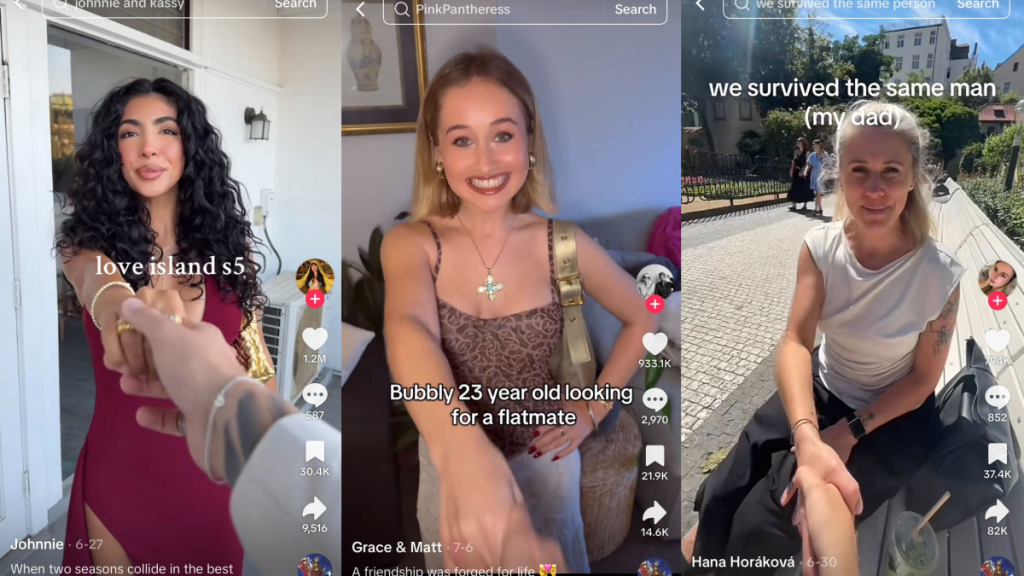A viral TikTok trend centered on British artist Pinkpantheress’s song “Illegal” has taken over the platform, with users humorously contrasting personal quirks in romantic relationships through a playful 13-second format. Despite the track’s original themes of taboo subjects like drug use and transactional encounters, creators have repurposed its catchy chorus to highlight lighthearted differences in lifestyles, backgrounds, or habits between partners.
The trend follows a structured sequence: two individuals alternate shaking hands while lip-syncing lyrics and overlaying text that emphasizes their contrasting experiences. A creator might caption “raised in a water-only family” before their partner adds “raised in an appetizer and soda family,” culminating in both asking, “Is this illegal?” — a tongue-in-cheek nod to the idea that their differences feel so unconventional, they “must be wrong.” The simplicity of the format, combined with its relatability, has fueled its spread, with variations ranging from cultural disparities to clashing hobbies.
Since mid-July, the sound has been featured in over 841,000 videos, according to TikTok’s Creator Search Insights, with engagement steadily rising. High-profile creators like Huddy (37 million views), Brooke Monk (21 million views), and Pinkpantheress herself (36 million views) have amplified the trend, which is now colloquially dubbed the “illegal trend.” Data indicates it resonates most with women aged 18–24, though its widespread appeal has led to offbeat interpretations, such as Love Island star Luca Bish using the track as background music for unrelated content.
Pinkpantheress’s original lyrics, which she confirmed reference illicit activities, take on an entirely new meaning in this context. The trend’s wholesome repurposing underscores how social media often remixes art to fit communal narratives, prioritizing humor and connection over a song’s intended message. While some creators adhere strictly to the handshake-and-text template, others experiment freely, demonstrating the malleability of viral formats.
Analysts note the trend’s success lies in its brevity and universal premise — nearly anyone can parody minor differences in relationships, from bedtime routines to household rules. Its rise mirrors past TikTok phenomena that transform niche music into cultural shorthand, proving once again how platforms can redefine content in unpredictable ways. As the trend continues to evolve, it highlights the ongoing interplay between creators, audiences, and the endless reinvention of digital culture.
